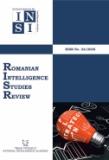INTERNATIONAL INTELLIGENCE LIAISON: BENEFITS AND DANGERS
INTERNATIONAL INTELLIGENCE LIAISON: BENEFITS AND DANGERS
Author(s): Alin DreptateSubject(s): International relations/trade, Security and defense, Peace and Conflict Studies
Published by: National Institute for Intelligence Studies
Keywords: information; intelligence; liaison; espionage; cooperation;
Summary/Abstract: Liaison between intelligence services is based on necessity and not on friendship, and it bears both benefits due to exchanges of information, coverage of intelligence gaps and shared operational costs, but it also has risks. The latter is given by the differences in the foreign policy of countries and their unequal perception of threats, observed in disproportionalities of resources allocated and power distribution to mitigate a perceived threat. Additionally to these, one of the most damaging aspects to intelligence cooperation agreement is the unauthorised disclosure, a consequence of insufficient national laws to regulate and protect intelligence cooperation; or due to vulnerabilities of an intelligence service caused by the presence of a penetration agent. Finding the balance between the benefits and dangers it is not an easy task which challenges the very need for liaison. This article argues that a pragmatic approach based on mutual interests and benefits will always outcome the risks associated with this activity.
Journal: Romanian Intelligence Studies Review
- Issue Year: 2020
- Issue No: 24
- Page Range: 6-19
- Page Count: 14
- Language: English

